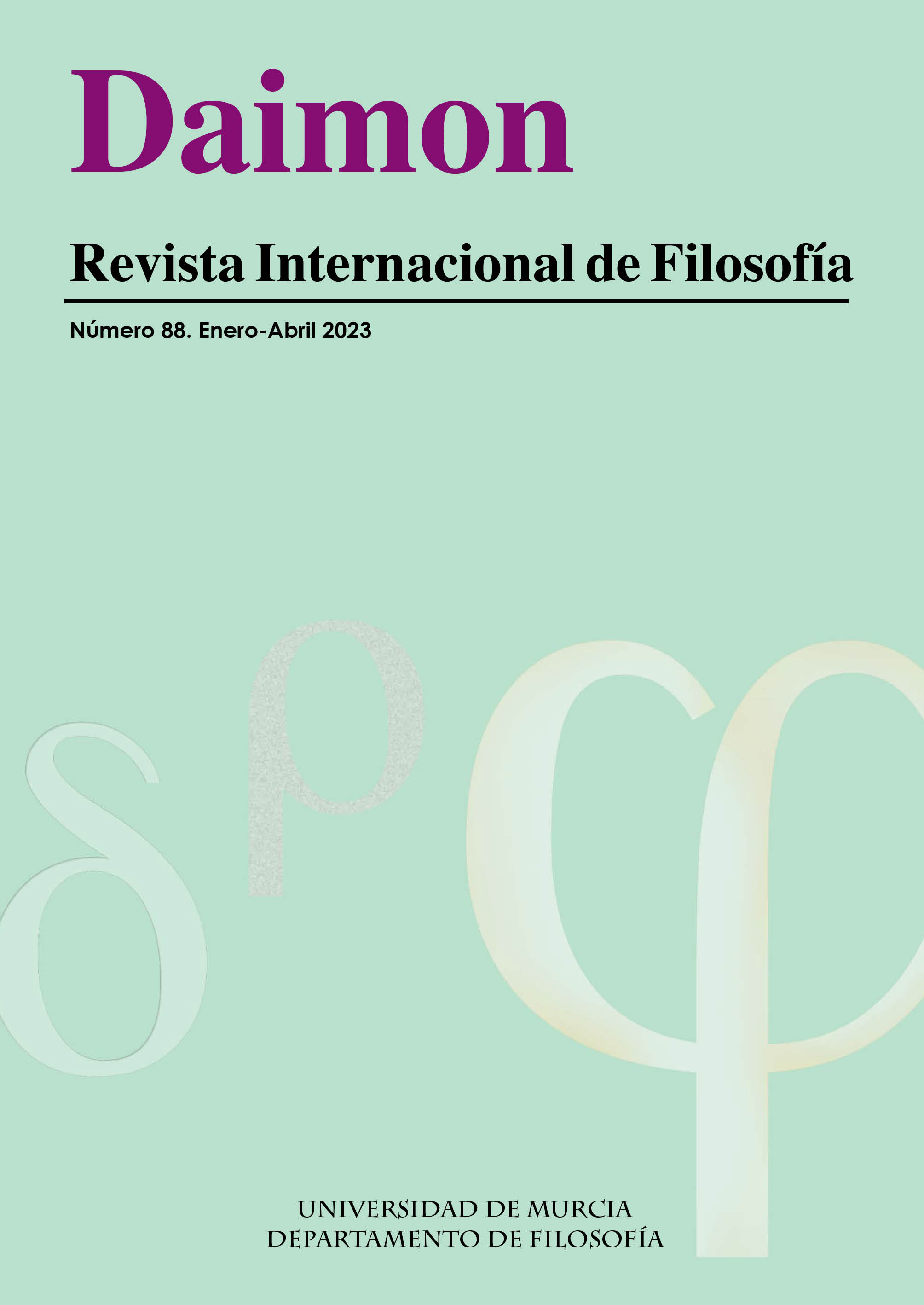Humanidad doliente: la violencia contemporánea en la obra de Eduardo Nicol
Abstract
This article proposes that the meditation on contemporary violence, in the Eduardo Nicol’s works, is part of a broad process of philosophical reflection of three decades, which questions the present and the future of humanity. Violence, for Nicol, is the display of a special rationality, born in Modernity, which he calls “force majeure reason” (razón de fuerza mayor) that is a change of life regime in the contemporary human being, sometimes to the basic need for survival, utility and a network of forcedness that reduces possibilities and freedom. In this way, the article traces in Nicol´s work the conformation —from the notion, to the idea and the conceptual framework— of violence as a disposition, act and system. Political regulation, hate and intersubjective violence, hostility and war in a global world are the focus of this collaboration.
Downloads
-
Abstract655
-
PDF (Español (España))350
-
HTML (Español (España))270
References
Arendt, H. (1970). On Violence, Florida: Hardcourt.
Berstein, B. (2015). Violencia. Pensar sin barandillas, Barcelona: Gedisa.
BobbiO, N. (2008). El problema de la guerra y las vías de la paz, Barcelona: Gedisa.
Dodd, J. (2014). “On the Concept of Violence: Intelligibility and Risk”, en Staudigl, M. Phenomenonologies of Violence, Boston: Brill.
Dreyfus, J. M. y Anstett E. (2017). Human Remains and Mass Violence. Methodological Approches, Manchester: Manchester University Press.
Galtung, J. (1969) “Violence. Peace and Peace Research”, Journal of Peace Research, vol. 6 (3): 167-191.
Gerlach, Ch. (2015). Sociedades extremadamente violentas. La violencia en masa en el siglo XX, México: FCE.
Keane, J. (2000) Reflexiones sobre la violencia, Madrid: Alianza.
Kressel, N. (2002) Mass Hate. The Global Rise of Genocide and Terror, Cambrige: Westview. BALIBREA, M. P. (2010) “Occidentalismo e integración disciplinaria: Eduardo Nicol frente a América”, en Sánchez Cuervo, A. y Hermida, F., Pensamiento exiliado español: el legado filosófico del 39 y su dimensión iberoamericana.
Nicol, E. (1946). La idea del hombre, México, Stylo.
Nicol, E. (1957). Metafísica de la expresión, México: FCE.
Nicol, E. (1965). Los principios de la ciencia, México: FCE.
Nicol, E. (1969). “Fenomenología y dialéctica”, Dianóia, 15: 115-140.
Nicol, E. (1972). El porvenir de la filosofía, México: FCE.
Nicol, E. (1980). La reforma de la filosofía, México: FCE.
Nicol, E. (1990). Ideas de vario linaje, México, UNAM.
Nicol, E. (2004). La agonía de Proteo, México: Herder.
Nicol, E. (2004). La agonía de Proteo, México: UNAM.
Nicol, E. (2007a). Las ideas y los días. Ensayos e inéditos 1939-1989, México: Afínita.
Nicol, E. (2007b). Símbolo y verdad, México: Afínita.
Copyright (c) 2023 Daimon Revista Internacional de Filosofia

This work is licensed under a Creative Commons Attribution-NonCommercial-NoDerivatives 3.0 Unported License.
Las obras que se publican en esta revista están sujetas a los siguientes términos:
1. El Servicio de Publicaciones de la Universidad de Murcia (la editorial) conserva los derechos patrimoniales (copyright) de las obras publicadas, y favorece y permite la reutilización de las mismas bajo la licencia de uso indicada en el punto 2.
2. Las obras se publican en la edición electrónica de la revista bajo una licencia Creative Commons Reconocimiento-NoComercial-SinObraDerivada 3.0 España (texto legal). Se pueden copiar, usar, difundir, transmitir y exponer públicamente, siempre que: i) se cite la autoría y la fuente original de su publicación (revista, editorial y URL de la obra); ii) no se usen para fines comerciales; iii) si remezcla, transforma o crea a partir del material, no podrá distribuir el material modificado.
3. Condiciones de auto-archivo. Se permite y se anima a los autores a difundir electrónicamente las versiones pre-print (versión antes de ser evaluada) y/o post-print (versión evaluada y aceptada para su publicación) de sus obras antes de su publicación, ya que favorece su circulación y difusión más temprana y con ello un posible aumento en su citación y alcance entre la comunidad académica. Color RoMEO: verde.











